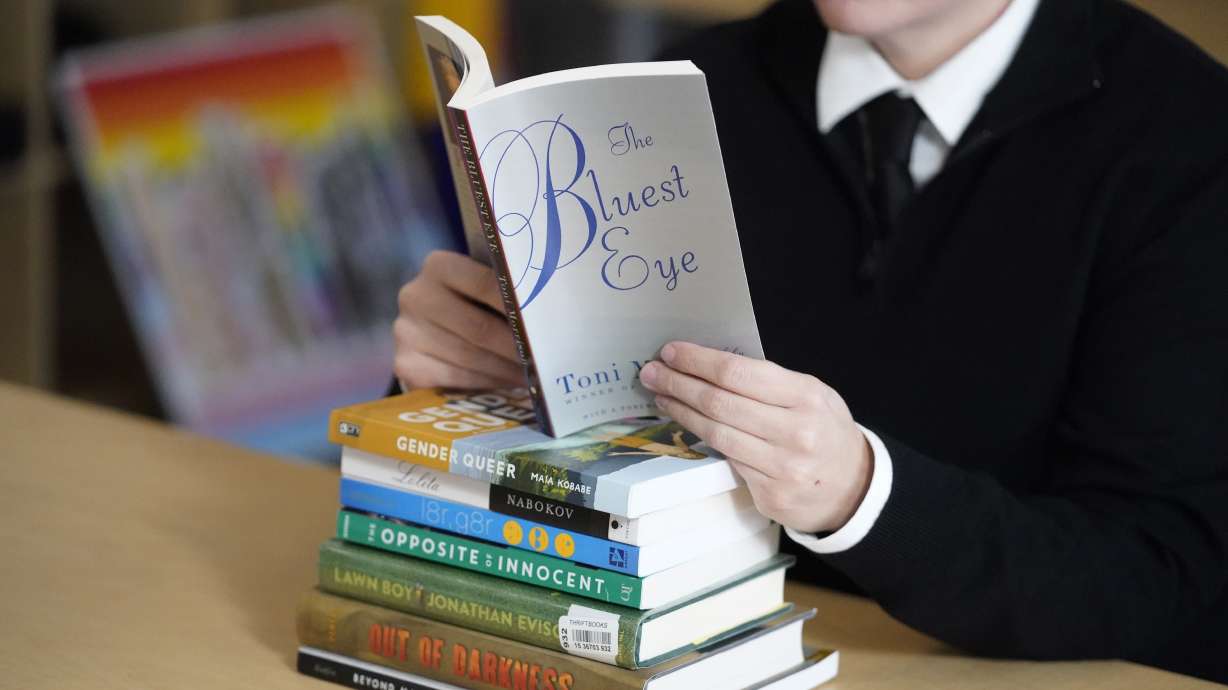Estimated read time: 4-5 minutes
This archived news story is available only for your personal, non-commercial use. Information in the story may be outdated or superseded by additional information. Reading or replaying the story in its archived form does not constitute a republication of the story.
SALT LAKE CITY — A measure that would streamline and potentially speed the removal of books with sexually explicit passages from shelves in public school libraries across Utah has passed its first legislative hurdle.
The House Education Committee voted 10-2 on Tuesday, recommending approval of HB29, meant to clarify and update "sensitive materials" legislation Utah lawmakers approved in 2022, HB374. It now goes to the full House for consideration.
Notably, the proposed change would require removal of material from public school libraries across the state if officials in three school districts deem it violates Utah code outlining pornographic or indecent material. That provision seemed to spark the most debate, spurring concern about loss of local control in gauging the appropriateness of books.
"It isn't banning books or book burning," said Rep. Candice Pierucci, R-Herriman, who supports the measure. "We're removing criminal pornography that shouldn't be in our schools and (school districts)."
The bill sponsor, Rep. Ken Ivory, started to read challenged material that has been found in school libraries during Tuesday's hearing and was stopped by Pierucci, chairwoman of the education committee. That, he argued, underscores his point that the changes in HB29 are needed to more efficiently allow for the removal of materials deemed sexually explicit.
"It's not 'Catcher in the Rye,'" he said, alluding to the J.D. Salinger coming-of-age novel about a teen. "This is horrific material that we can't even bear to hear in a meeting of adults, understandably. Please, let's get this out of the presence of our children."
The measure doesn't create new standards in the judging of books, which HB374 aimed to specify. Rather, it creates new mechanisms to deal with material found to be inappropriate, said Rep. Joseph Elison, R-Toquerville, a committee member. State law, he said, "clearly specifies what defines sensitive material. This bill, in my opinion, just simply says this is how we're going to unify our state in complying with statute."
Some school officials, Ivory said, didn't think HB374 was clear enough in spelling out the process to review and pull books. HB29, he went on, aims to clarify the parameters.
Per HB29's provisions, school district administrators would have leeway to unilaterally remove from schools "objective sensitive material," books found to contain "pornographic or indecent" material as defined in state law. A review committee wouldn't review such material.
Review committees would be formed, per the bill's provisions, to review "subjective sensitive material," books containing less flagrantly sexual matter. The committees would determine whether the books in question should remain on school shelves, gauging them for their literary, artistic, political or scientific value, as spelled out in state law.
Books deemed to violate "sensitive materials" guidelines in three separate school districts, whether through the "objective" or "subjective" review process, would be pulled from school shelves across the state. Likewise, books deemed in violation of the guidelines in two school districts and in five charter schools would also have to be removed from schools across Utah.
Rep. Carol Spackman Moss, D-Salt Lake City, voted against recommending HB29. She worries it would result in a loss of local control in scrutinizing school books. Rep. Angela Romero, D-Salt Lake City, also voted "no."
That books would be pulled statewide because as few as three districts deem them inappropriate "really bothers me because districts are different," Moss said. "Some are rural. Some are urban. They have different needs, different types of kids."
Beyond that, Moss wonders how many kids actually peruse school library shelves. "That fact is, kids aren't checking books out much. I asked all around my neighborhood, at church, teenagers — 'No, we never checked the book out of the school library,'" she said. "I mean, we ought to start a crusade to get people reading again."
Several HB29 foes addressing the committee also expressed concern about the provision allowing for removal of books statewide, including Sara Jones of the Utah Education Association.
"So literally, a couple of individuals in just a couple of communities can usurp the ability of locally elected school boards to represent their own constituents. ... More importantly, a couple of individuals making these complaints can usurp the ability of every other parent in the state to make choices for their child through their representation at their local school board level," Jones said.
HB374 has resulted in a flurry of challenges to books in schools across Utah and removal of many of them. But Brooke Stephens, who helped create a website that she says identifies questionable books in districts around Utah, ratedbooks.org, says many remain. "Explicit content exists in every district that we have listed," said Stephens, who also addressed Tuesday's committee meeting.










